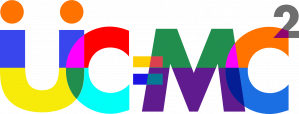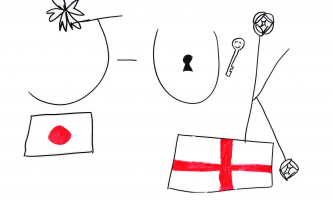A Passage to Malta – The Health and Wellbeing of Foreign Children in Malta
What did we do
A National research study was carried out amongst foreign children in Malta so as to assess their health and wellbeing. The study also assessed the attitudes of Maltese students towards foreign children.
https://tfal.org.mt/en/publications/PublishingImages/Pages/Research-Studies/Passage%20to%20Malta%20website.pdf
Contact: Suzanne Garcia Imbernon, Office of the Commissioner for Children Malta (suzanne.gii@gov.mt)
The place is called:
Malta and Gozo
Date
1/1/2019
Ongoing
Rights 4U live-in
What did we do
Every summer the Office of the Commissioner for children organises a three-day live-in for young people between the ages of 13 and 15 entitled Rights 4U. Through these three-day live-ins, young people participate in various activities. The aim of these programmes is to create more awareness about the United Nations Convention on the Rights of the Child and how it applies to the use of the new digital technologies. These participants come from different State, Church and Independent Schools.
This interactive programme addresses various issues such as online privacy, cyber-bullying, hate speech and creating an online/offline balance.Throughout the three days, the participants will also develop critical thinking skills and build social ties based on mutual respect.
Contact: Suzanne Garcia Imbernon, Office of the Commissioner for Children, Malta (suzanne.gili@gov.mt)
The place is called:
Malta and Gozo
Date
1/1/2019
Ongoing
Add other important experiences or identities
This initiative is promoted in all schools and therefore all children are encouraged to apply. However the Office specifically encourages children living in vulnerable situations to participate.
Children’s City Council Opatija
What did we do
The aims of our project:
• Establishing a relationship of mutual respect, listening and communication between children and the City.
• Developing awareness of the City as a community of all citizens.
• Recognition of rights to all groups of citizens.
• Enabling children to exercise their right to express their opinions.
• Training children to make decisions for themselves and others.
• Developing responsibility for children for decisions they make.
In October 2001, the first meeting of the Coordination Board of the “Children City Council” project was held at the premises of the Administrative Department for Self-Government and City Administration of Opatija.
Children from Children City Council Opatija since 2001 participate in the development of local and national strategies for children.
In its work, the standards of the Children’s City Council of the City of Opatija are governed by:
1. The Children’s City Council of Opatija has it’s own Statute,
2. The sessions of Children’s City Council Opatija are recorded,
3. Children’s City Council Opatija gives it’s proposals for a large city budget, and adults from the city after budget adoption give councilors information on which proposals have entered into the budget,
4. The Mayor and his deputies regularly participate in the sessions of Children’s City Council Opatija,
5. The mayor and his deputies shall answer the questions to the children or provide their answers in writing,
6. The little Children’s City Council Mayor of Opatija follows the big City Mayor in all protocols for children,
7. Children’s City Council Opatija has its budget in the amount of 12.000, kn (1,500 Euro), “My hands grow to you bigger, because I want to give you luck” is the name of the Call for Proposals funds from the Budget of the Children’s City Council of Opatija,
8. Children’s City Council Opatija announces the Contest for children “My Heart and Your Arms need to conquer the whole world with goodness” with the aim of promoting solidarity and humanity among children (primary and secondary school),
9. City expert services provide all the logistical support in project implementation.
http://dnd-opatija.hr/en/project-actions/society-our-children-opatija-and-ministry-of-social-policy-and-youth/
Contact: Antonia Katić, Society “Our children” Opatija (antonia.skoric14@gmail.com)
The place is called:
Opatija, Croatia
Date
1/3/2001
Ongoing
Creating Our Lives
What did we do
Care experienced children worked with The Centre for Children and Young People’s Participation and directed research that informed national guidelines
The place is called:
England
Date
1/1/2020
31/3/2021
Add other important experiences or identities
young parents
NETWORK OF YOUNG ADVISORS (NYA) – PARTICIPATION OF CHILDREN AND THE IMPACT ON THE WORK OF THE OMBUDSMAN FOR CHILDREN
What did we do
We organize consultation meetings with children and young people and focus group discussions aimed at enhancing children’s involvement in decision-making, are considered as being particularly beneficial.
In 2010, the Ombudsman for Children founded the Network of Young Advisors (NYA) as its standing advisory body and a form of child participation. The NYA members act as advisors to and associates of the Ombudsman for Children, but also as ambassadors, communicating information about the work of the NYA and the Ombudsman for Children to their peers and taking steps to ensure that they know their rights and the ways to protect them. Acting within the scope of their role as advisors, they inform the Ombudsman about their views of the place of children in society and problems faced by children in their communities, suggesting ways to solve these problems. In carrying out their advisory role, they work closely with the Ombudsman for Children and the adult staff members of the Office of the Ombudsman for Children, and exchange views and opinions via a closed online forum. Each member of the NYA promotes and argues for his/her own point of view, acts on his/her own behalf, and does not represent any group, school or town. The NYA members are constantly active in the online forum, which enables a constant exchange of opinions between meetings.
http://dijete.hr/en/publications/
The place is called:
Croatia and International
Date
1/1/2010
18/3/2021
Health Inequalities: Peer Research into the role of communities
What did we do
We worked with 15 young peer researchers in two areas of high deprivation to explore how the areas that they grow up in affect health and wellbeing and contribute to health inequalities.
The young peer researchers designed their research project, collected data and analysed their findings. We then published a final report detailing their work with a series of recommendations for local and national decision makers.
https://childreninscotland.org.uk/health-inequalities-participative-research-project/
The place is called:
Glasgow and Dundee
Date
1/4/2019
18/3/2021
Add other important experiences or identities
Some members of the project identified as having additional support needs
Changing Gears
What did we do
In 2020 Children in Scotland was asked by Cycling Scotland to explore children and young people’s views and perceptions of cycling and road safety. The project, called Changing Gears, offered 300 children and young people the chance to share their thoughts and experiences and shape future decisions about cycling across Scotland.
Contact: Elaine Kerridge, Children In Scotland (ekerridge@childreninscotland.org.uk)
The place is called:
Scotland
Date
1/5/2020
18/12/2020
Children and Young People’s Panel on Europe
What did we do
Children in Scotland worked in partnership with Together (the Scottish Alliance for Children’s Rights) to support the engagement of children and young people in decision making about Britain’s exit from the EU.
We supported a group of 19 children and young people aged 8 – 19 to share their views and come up with recommendations for what they wanted to happen as the UK left the EU.
Contact: Chris Ross, Children in Scotland cross@childreninscotland.org.uk
Report launch video – https://www.youtube.com/watch?v=9P2xvII-KqA
The place is called:
Across Scotland
Date
20/7/2018
18/12/2020
JUK
What did we do
We trained young people in Japan as researchers. They did art activities and interviews with other disabled children and young people. We analysed the findings together. We compared the way Japan and the UK are with children’s participation and rights for people with disabilities. We reported to the UN Committee.
The place is called:
Japan and the UK
Date
1/12/2016
Ongoing
Com’ON Cluj-Napoca ‘20
What did we do
We delivered the fourth edition of the participatory budgeting for youth in the city of Cluj-Napoca, Romania, providing funding for community initiatives proposed by young people for the city in the context of the COVID-19 pandemic, providing the power of decision towards young people about which proposals to receive funding and enabling the informal groups which received funding to implement their own initiatives.
Com’ON Cluj-Napoca website: www.comoncluj.ro
Facebook page: https://www.facebook.com/comoncluj
Aftermovie: https://fb.watch/4CHXttc–I/
Brochure: https://issuu.com/pontgroup/docs/comon_cluj_2020_brochure
Contact: András Farkas, PONT Group and the Municipality of Cluj-Napoca (andras.farkas@pontgroup.org)
The place is called:
Cluj-Napoca, Romania
Date
1/6/2020
1/12/2020
Add other important experiences or identities
community engagement, building intergenerational trust, developing the communities of the future


